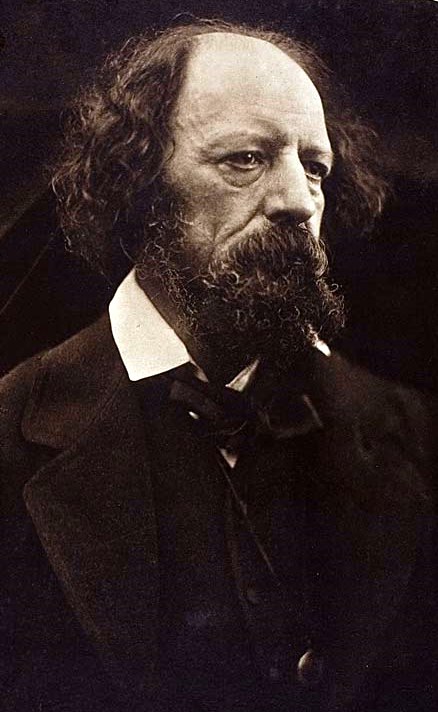“La voce dei morti era per me una voce vivente.”
Origine: Citato in Harry Carmichael, epigrafe a Delitto al rallentatore, Il giallo Mondadori, n. 1160, 25-4-1971.
Alfred Tennyson, primo Barone Tennyson , fu un poeta inglese, laureato del Regno Unito, nonché uno dei più famosi del suo Paese.
La maggior parte dei suoi versi furono ispirati a temi classici o mitologici, anche se la celebre In Memoriam fu scritta per commemorare il suo migliore amico Arthur Hallam, anch'egli poeta e suo compagno di corso al Trinity College di Cambridge, che si era fidanzato con sua sorella ma era improvvisamente morto nel 1833 a causa di un'emorragia cerebrale.
Una delle opere più famose di Tennyson sono gli Idilli del re , una raccolta di poesie interamente basate su Re Artù e sul ciclo brettone, tema ispiratogli dai racconti che Sir Thomas Malory aveva precedentemente scritto sul leggendario sovrano. L'opera fu dedicata al Principe Alberto, marito della regina Vittoria. Nel corso della sua carriera Lord Tennyson si cimentò anche nella composizione di drammi teatrali, ma in questo campo i suoi lavori riscossero uno scarso successo.

“La voce dei morti era per me una voce vivente.”
Origine: Citato in Harry Carmichael, epigrafe a Delitto al rallentatore, Il giallo Mondadori, n. 1160, 25-4-1971.
“Non ha amici l'uomo che non si è fatto mai dei nemici.”
Origine: Citato in Guido Almansi, Il filosofo portatile, TEA, Milano, 1991.
The Poet (1830)
Contesto: There was no blood upon her maiden robes
Sunn'd by those orient skies;
But round about the circles of the globes
Of her keen
And in her raiment's hem was traced in flame
WISDOM, a name to shake
All evil dreams of power — a sacred name.
And when she spake,
Her words did gather thunder as they ran,
And as the lightning to the thunder
Which follows it, riving the spirit of man,
Making earth wonder,
So was their meaning to her words. No sword
Of wrath her right arm whirl'd,
But one poor poet's scroll, and with his word
She shook the world.
" A Dream of Fair Women http://home.att.net/%7ETennysonPoetry/dfw.htm", st. 2 (1832)
“Old men must die, or the world would grow mouldy, would only breed the past again.”
Becket, Prologue, reported in Bartlett's Familiar Quotations, 10th ed. (1919)
"Come not, when I am dead" (1850)
"The Miller's Daughter" (1832)
Aylmer's Field (1864); reported in Bartlett's Familiar Quotations, 10th ed. (1919)
“So dear a life your arms enfold,
Whose crying is a cry for gold.”
The Daisy, Stanza 24; reported in Bartlett's Familiar Quotations, 10th ed. (1919)
“A simple maiden in her flower
Is worth a hundred coats-of-arms.”
Stanza 2
Lady Clara Vere de Vere (1832)
The Flower; reported in Bartlett's Familiar Quotations, 10th ed. (1919)
Stanza 63
Locksley Hall Sixty Years After (1886)
“Is there evil but on earth? or pain in every peopled sphere?”
Origine: Locksley Hall Sixty Years After (1886), Line 197
" Sir Galahad http://home.att.net/%7ETennysonPoetry/sg.htm", st. 1 (1842)
Quoted in A Dictionary of Quotations, in Most Frequent Use by D.E. Macdonnel (1809) translated from French: Le bonheur de l'homme en cette vi ne consiste pas á être sans passions: il consiste à en être le maître.
Misattributed
Tiresias, reported in Bartlett's Familiar Quotations, 10th ed. (1919)